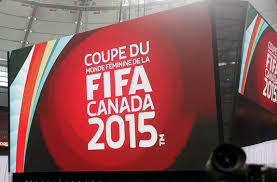By Andrew Warshaw
October 28 – Lawyers representing an elite group of international players fighting to play on natural grass at next June’s Women’s World Cup have added a retaliation claim against FIFA and the Canadian Soccer Association, claiming “unlawful reprisal threats” towards those participating.
Both parties are alleged to have warned players that they risk being sanctioned if they persue their action.
The retaliation claim comes on top of the original players’ claim that being forced to play the 2015 Women’s World Cup on artificial turf represents gender discrimination since male players would never have to do the same.
The latest action, filed in the Human Rights Tribunal of Ontario, states that several players – including Teresa Noyola of Mexico and French players Camille Abily and Elise Bussaglia – were forced to remove themselves from the campaign for fear of retaliation from FIFA.
Lawyers allege FIFA threatened to suspend Noyola from the recently completed World Cup qualifying event because of her participation in the protest. Mexican officials allegedly then indicated to Noyola that she would not be selected for the tournament if she remained part of the legal action. Mexico qualified for the World Cup on Sunday in a match in which Noyola played.
Abily and Bussaglia were allegedly “led to believe that their continued participation in this legal action would lead to retaliation by FIFA in the awarding of the 2019 Women’s World Cup.” France are understood to be the favourites to land the tournament.
Two Costa Rican players are also referenced in the new documents as having been intimidated. “As a result of the threats, a retaliation claim has been added to the players’ sex discrimination action,” said Hampton Dellinger of Boies, Schiller & Flexner LLP.
According to Dellinger, there are now 62 players in the lawsuit, up from just over 40 when it was first filed in early October. Dellinger calls the proposed use of artificial turf at next summer’s tournament in Canada “game-changing, dangerous and demeaning.”
“Inspiringly, many players have stepped forward to take the place of the few forced to withdraw as a result of threats initiated by FIFA and CSA. The replacement of three applicants with 20 new ones brings the players’ legal coalition to over 60 members and shows that the retaliation threats – while reprehensible and legally actionable – have backfired against FIFA and CSA.”
A FIFA official said in September there was “no plan B” while in the organisation’s defence, arguments have been expressed that the best artificial surfaces are far less harmful on the body than poor grass ones.
Earlier this month, CSA lawyers issued a statement which read: “The core issue in terms of the claim that’s been advanced is that FIFA 2-star turf is somehow second-class. It is a first-class playing field. It is part of the Canadian game. It has been recognized as appropriate.”
To avoid persuing their legal action, the campaigning players recently proposed to FIFA and the CSA that temporary grass be laid over the artificial turf surfaces, and would ideally like the matter resolved by November 26.
Several men’s players are in support of them. “I’m fully behind them,” Toronto FC captain Steven Caldwell said in a recent interview with the Canadian Press. “I don’t think they should be playing the World Cup or any games on turf in any professional league.”
Contact the writer of this story at moc.l1743664389labto1743664389ofdlr1743664389owedi1743664389sni@w1743664389ahsra1743664389w.wer1743664389dna1743664389

